In the name of research
Cancer Research UK is one of the charities supported in this year’s Candis Big Give. This month, we meet Liz Chipchase, who took part in one of their clinical trials. She tells us how it saved her life, and why the charity’s research is important
As a retired scientist who had worked in research labs throughout her career, when Liz Chipchase signed up for a clinical trial in 2017, her reason was scientific interest. She had no idea it would be a decision that would save her life.
“My GP contacted me in 2017 about a trial called BEST3, which is studying the effectiveness of the Cytosponge – or ‘Pill on a String’ – that collects cells from the oesophagus (the tube connecting the mouth to the stomach) which then undergo molecular testing to look for signs of a condition called Barrett’s Oesophagus, which can then develop into cancer,” says Liz, 71. “I have had acid reflux for 40 years – which can be a trigger for this pre-cancerous condition – so was eligible for the trial, and I was really interested in it from a scientific point of view. The technique was also so simple and there were no drugs involved or anything complicated. I just had to see a nurse at my GP surgery for the test, which involved swallowing a capsule with a string attached and waiting for five minutes for it to dissolve in my stomach. The expanded sponge was then pulled out quite quickly. “I took part in the trial that August and had no worries at all they would find anything wrong. However, to my complete surprise, the test picked up on abnormalities.”
Further tests revealed Liz not only had Barrett’s Oesophagus, it had also developed into oesophageal cancer. “It was a huge shock to get the diagnosis. I found it hard to gather my thoughts – all sorts of things were going through my mind. I knew the survival rates for those with advanced oesophageal cancer weren’t high (around 15 per cent of people survive for five years or more after being diagnosed with stage-3 oesophageal cancer), so you start thinking about needing to put your life straight quickly. I also started thinking about treatments and all the associated horrors of that.
“I didn’t tell my husband or son about the diagnosis for a week until I had sorted in my own mind how I felt. I got them both together so I only had to tell them once. They gave me the hugs I needed and were a fantastic support.”
Fortunately, Liz was given an endoscopy just a fortnight later. This is a procedure where the inside of your body is looked at using an instrument called an endoscope, which contains a light and camera on one end. Samples of the cells of the oesophagus were taken, revealing the cancer was restricted to its surface layers. “This was fantastic news as it meant my chances of survival were much higher as the cancer hadn’t spread, and it could also be treated straightforwardly. To say I was relieved is a huge understatement!”
In December 2017, Liz was given an endoscopic resection – a minimally invasive procedure to remove the area of early stage cancer cells. When that had healed, she had a further endoscopy to take more samples. “The doctors realised they hadn’t managed to get rid of all the cancer, so I was offered a choice of treatment. I could either have another resection or, because there was a chance the cells had already started penetrating lower into the oesophagus where they could then spread, the alternative was to have my oesophagus surgically removed.
I talked to the surgeon and the consequences of having the operation were so intensive and intrusive to life, with long recovery rates, that I decided to go for another resection.”
Liz had her second endoscopic resection in March 2018, which was successful in removing all the cancerous tissue. “I had to have further treatment to remove the pre-cancerous Barrett’s Oesophagus cells that were present – again done during an endoscopic procedure.
“I feel so lucky to have been able to discover my cancer so early – and by such a miraculous chance. If my GP hadn’t been selected and got me on a good day when I thought the trial sounded interesting, I don’t know what would have happened. I could have been facing months or years of expensive, difficult and painful treatment. But instead I was able to have an extremely gentle treatment on an outpatient basis. And I am clear of cancer!”
Since her treatment, Liz is determined to make the most of her life. “The experience has changed me and I definitely smile a lot more now! It also made me think about trying to help other people. I’d love to see the Cytosponge (inset) and molecular test become widespread for people with digestive problems and acid reflux and used by GPs everywhere.”
Liz is now a vocal advocate for Cancer Research UK, who supported the development of the Cytosponge and molecular test, and also the trial she took part in. “Early cancer detection is key to saving people’s lives. The truly awful thing with cancer is you usually can’t tell when cells are multiplying out of control inside you until they have grown to such an extent that they are affecting something physical about you. If you can discover them early – before symptoms are showing – it drastically minimises side effects of the treatment and also increases survival rates.
“Cancer Research UK helps to fund the clinical trials that make early diagnosis a possibility and reality. There are many stages between a good idea and getting a new test out into clinical practice, and these sort of trials are an essential part of this process. I feel so grateful for everyone involved in my trial and really believe it saved my life. I would love to see more lives saved through the charity’s research.”
Detecting cancer earlier
Fundraising target: £60,000
Cancer Research UK is using money raised in The Candis Big Give to advance early cancer detection, helping improve chances of survival for patients. The money will go to the International Alliance for Cancer Early Detection (ACED), which is a collaborative project launched by the charity connecting five of the top universities for research into early detection. The ACED comprises three UK centres – the University of Cambridge, the University of Manchester, and University College London – and Stanford University, and Oregon Health & Science University in the US. David Crosby at Cancer Research UK says, “Early detection research is really difficult. There’s some great research going on in pockets of the world, but because it hasn’t had the same focus as, for example, developing new drugs, there has been less money invested into it, so all those researchers have been doing the best they can but with limited resources and in a very small way. What Cancer Research UK did was look at that fragmented picture and decided to bring all those places together to form a super team – like The Avengers of cancer research! We are bringing them together and providing the money and infrastructure to work as a team for the first time, to try and make the whole greater than the sum of the parts.”
Through ACED, the charity will fund groundbreaking research projects, skill development, and translate research into new ways to fast-track cancer diagnosis.
Visit cancerresearchuk.org for details.
What Cancer Research UK means to me
David Crosby Head of Prevention and Early Detection Research for Cancer Research UK, tells us about the charity’s vital work I have been working for Cancer Research UK for about three-and-a-half years and it is a truly special and exciting place to be.
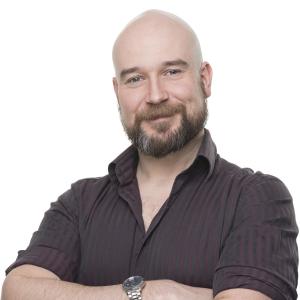 My job involves looking after the strategy on how we support research to try and find cancers early and to prevent them from happening at all. We raise money from
My job involves looking after the strategy on how we support research to try and find cancers early and to prevent them from happening at all. We raise money from
the public and we need to decide what the best way is of using the money we receive. That’s a big part of my job, thinking about how we can use that money in the most efficient way to really make a difference in cancer survival.
One of the most important ways you can do that is through finding it early – if you
detect cancer at the earliest stages you’ve got a great chance of surviving with the treatments we now have, but if it’s detected at the late stages and has spread around
the body, people’s chances are very poor. So we’re investing people’s money into trying to find ways of spotting the cancer really early when we can save lives, and ultimately prevent it from happening at all, which is an amazing thing to be a part of.
Cancer Research UK is an organisation that has a singular mission and everybody that works there is part of that mission. We’re all here to beat cancer and to bring forward the day when no one gets a late diagnosis and where no lives are needlessly lost to this disease. It feels great to be part of that mission, and to get the privilege of working alongside some of the most intelligent, ingenious, talented and dedicated people in the world every day. I get the opportunity to hear about all this incredible science that is happening and the breakthroughs that are being made, and then to be part of that, to bring people together, and hopefully to make progress that otherwise wouldn’t have happened. And if something that I do ends up saving lives, then what could be better than that?
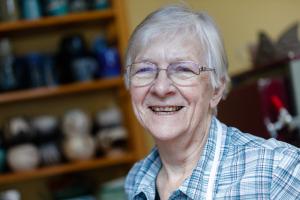
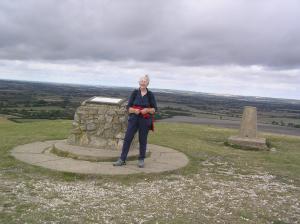
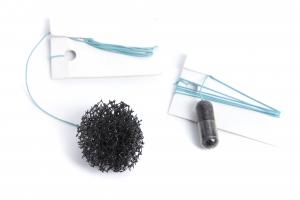
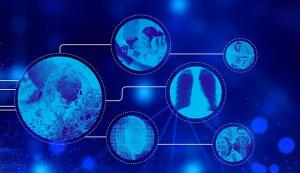

Leave a Reply
Please login or register to leave a comment.